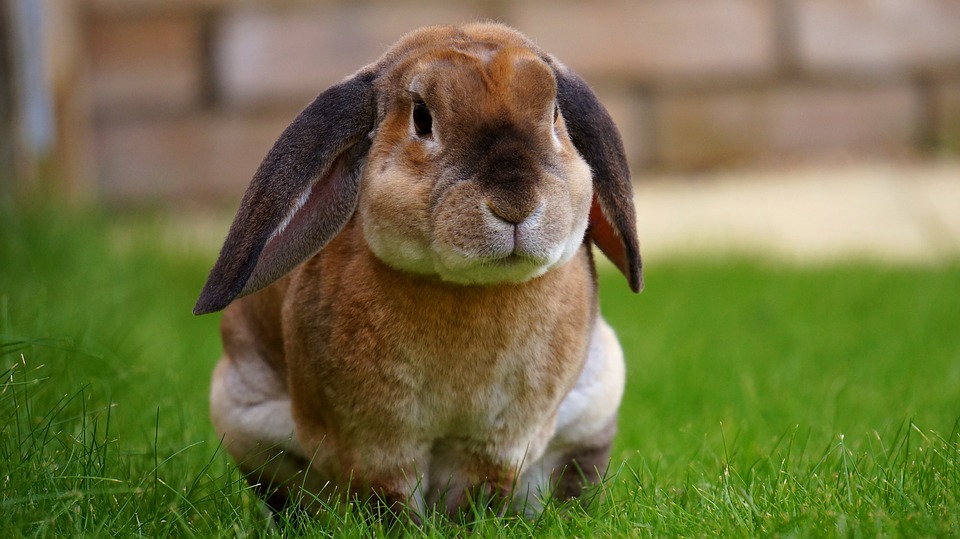Part 1: Unpacking the Nutritional Value of Kale

1.1 A Green Powerhouse: The Nutritional Profile
- Kale, a member of the Brassicaceae family, boasts an abundance of essential vitamins, minerals, and antioxidants.
- Key nutrients include:
- Vitamins: A, C, K, B6, E
- Minerals: Calcium, iron, potassium, magnesium, phosphorus
- Antioxidants: Lutein, zeaxanthin, beta-carotene
- These components contribute to a range of health benefits, including immune function, vision, bone health, and overall well-being.
1.2 Benefits of Kale for Rabbits: A Closer Look
- Enhanced Digestive Health: The high fibre content in kale promotes healthy gut bacteria and regularity, preventing digestive issues.
- Boosted Immunity: Vitamins A and C act as potent antioxidants, strengthening the immune system and protecting against infections.
- Dental Health: Chewing on kale stems helps wear down teeth, preventing overgrowth and potential dental problems.
- Healthy Bones: Calcium and Vitamin K, crucial for bone health, are present in good quantities within kale.
Part 2: Potential Concerns: Understanding the Risks

2.1 Oxalates: A Potential for Urinary Tract Issues
- Kale contains oxalates, organic compounds that can bind to calcium in the body, potentially hindering its absorption.
- High oxalate intake can lead to calcium oxalate crystals forming in the urine, increasing the risk of urinary tract stones and other complications.
- Rabbits are particularly susceptible to urinary tract problems, making oxalate content a crucial factor to consider.
2.2 Goitrogens: Impact on Thyroid Function
- Kale contains goitrogens, compounds that can interfere with thyroid hormone production.
- While goitrogen levels in kale are relatively low, excessive consumption can lead to thyroid issues, especially in young and growing rabbits.
- Symptoms of thyroid problems in rabbits include weight loss, lethargy, increased thirst, and hair loss.
2.3 Sensitive Digestive Systems: Avoiding Upset
- Rabbits have sensitive digestive systems that can easily be disrupted by sudden dietary changes.
- Introducing kale too quickly or in large quantities can lead to digestive upset, manifesting as diarrhoea, lethargy, and loss of appetite.
- It's essential to introduce new foods gradually, monitoring your rabbit's response closely.
Part 3: Mastering the Art of Safe Kale Feeding
3.1 Start Slowly: Gradual Introduction is Key
- Begin by offering a tiny piece of kale, no larger than a fingernail, once or twice a week.
- Observe your rabbit for any signs of digestive upset or adverse reactions. If everything seems alright, slowly increase the amount and frequency over several weeks.
- Patience and careful observation are crucial to ensure your rabbit tolerates kale without experiencing any problems.
3.2 Choosing the Right Kale: Quality and Freshness Matter
- Opt for fresh, organic kale, free from pesticides and herbicides. These chemicals can be harmful to your rabbit.
- Thoroughly wash kale under running water to remove dirt, debris, and any residual pesticide residue.
- Avoid kale that is wilted, discoloured, or has any signs of spoilage. Only offer fresh, healthy kale to your rabbit.
3.3 Safe Preparation Techniques: Ensuring Easy Digestion
- Remove the thick stems of kale, which can be difficult for rabbits to chew and digest. You can save these for yourself or compost them.
- Chop the leaves into small, manageable pieces to prevent choking hazards and promote easier digestion.
- Offer kale fresh, as it loses its nutritional value and becomes less palatable over time.
Part 4: Building a Balanced Diet: Kale's Role
4.1 Timothy Hay: The Foundation of a Healthy Diet
- Timothy hay should be the cornerstone of your rabbit's diet, providing essential fibre, nutrients, and promoting healthy digestion.
- Offer unlimited amounts of fresh, high-quality timothy hay throughout the day to prevent boredom, encourage chewing, and maintain a healthy gut.
4.2 A Variety of Fresh Greens: Beyond Kale
- Besides kale, offer a diverse range of safe leafy greens and vegetables, including parsley, cilantro, spinach (in moderation due to oxalates), bell peppers, and romaine lettuce.
- Introduce new vegetables gradually, monitoring your rabbit's response and avoiding sudden changes to their diet.
4.3 Pellets: A Supplemental Source of Nutrients
- High-quality rabbit pellets can provide additional nutrients, but should be offered in limited quantities, typically a small handful per day.
- Follow the manufacturer's recommendations regarding pellet intake, as excessive amounts can lead to obesity and other health problems.
4.4 Fresh Water: Essential for Hydration
- Provide fresh, clean water at all times, ensuring your rabbit has constant access throughout the day.
- Change the water daily or more frequently, as needed, to maintain freshness and encourage drinking.
Part 5: Monitoring Your Rabbit's Health: Detecting Potential Issues
5.1 Recognizing Digestive Upset: Early Signs
- Diarrhoea
- Lethargy
- Loss of appetite
- Bloating
- Changes in stool consistency and frequency
5.2 Observing Urinary Tract Problems: Key Indicators
- Increased urination frequency
- Straining to urinate
- Blood in urine
- Changes in urine colour or odour
5.3 Identifying Thyroid Issues: Watch for These Symptoms
- Weight loss
- Increased thirst and urination
- Lethargy and inactivity
- Hair loss or thinning
Part 6: When to Seek Veterinary Guidance
- Consult with your veterinarian to determine the appropriate amount of kale for your rabbit, taking into consideration their age, size, and overall health condition.
- If you notice any concerning symptoms, even if they seem minor, seek immediate veterinary attention to rule out any underlying health issues.
- Your veterinarian can provide personalized advice and monitor your rabbit's health for any potential complications.
FAQs: Addressing Common Concerns
1. Can all rabbits eat kale?
While kale is generally safe for rabbits, individual sensitivities can vary. It's crucial to introduce it gradually and monitor your rabbit for any adverse reactions. If you notice any signs of digestive upset or other health problems, stop feeding kale and consult your veterinarian.
2. How much kale can rabbits eat?
The recommended amount of kale for rabbits is small, typically no more than a few small leaves per week. This can vary depending on the individual rabbit's size and health. It's essential to observe your rabbit's response and adjust the amount accordingly.
3. What are the best ways to prepare kale for rabbits?
Remove the thick stems and chop the leaves into small pieces to make them easier for rabbits to chew and digest. Ensure the kale is thoroughly washed to eliminate any dirt or pesticides.
4. Can baby rabbits eat kale?
It's best to avoid feeding kale to baby rabbits, as their digestive systems are still developing and they may be more sensitive to oxalates and goitrogens. Stick to safe and easy-to-digest greens like parsley and cilantro until your baby rabbit is older.
5. Is kale better than other leafy greens for rabbits?
Kale is a nutritious green, but it's not necessarily "better" than other leafy greens. Offer a variety of safe vegetables to ensure your rabbit receives a balanced diet. Variety is key for a healthy and happy rabbit.
6. What if my rabbit eats too much kale?
If you suspect your rabbit has ingested excessive amounts of kale, observe it for any signs of digestive upset or other health problems. Consult with your veterinarian for advice. They can assess the situation and provide specific guidance based on your rabbit's health.
7. Can kale cause diarrhoea in rabbits?
Yes, kale can cause diarrhoea in rabbits if fed in excessive quantities or if the rabbit is sensitive to it. Introducing kale gradually and monitoring your rabbit's response is essential. If you notice diarrhoea, stop feeding kale and consult your veterinarian.
8. Should I give kale to my rabbit every day?
It's not recommended to give kale to your rabbit every day, as its oxalate and goitrogen content can be problematic in larger quantities. Offer kale occasionally as part of a diverse diet to ensure your rabbit receives a variety of nutrients without the risk of potential complications.
Everyone is watching
-

Do Rabbits Lay Eggs? (The Surprising Truth)
OTHER TYPES OF PETSThis article will unravel the common misconception that rabbits lay eggs, exploring the fascinating world of r...
-

What's a Group of Rabbits Called? (A Comprehensive Guide)
OTHER TYPES OF PETSThis article delves into the fascinating world of rabbits, exploring the various terms used to describe a grou...
-

Can Rabbits Eat Grapes? A Guide to Safe Rabbit Treats
OTHER TYPES OF PETSThis comprehensive guide will explore the safety and suitability of grapes for rabbits, providing detailed inf...
-

Predators That Hunt Rabbits: A Guide to Natural Enemies
OTHER TYPES OF PETSI've always been fascinated by the circle of life, that delicate dance between predator and prey. Growing up ...
-

Are Rabbits Nocturnal Animals?
OTHER TYPES OF PETSThe question of whether rabbits are nocturnal animals is a fascinating one, with a surprisingly complex answer...
